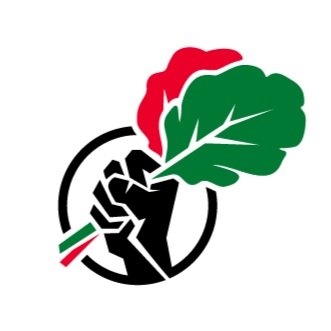NBFJA Statement: How the Inflation Reduction Act Falls Short
Relese Date: August 17, 2022
Yesterday, President Biden signed the Inflation Reduction Act into law leaving Black farmers once again with unfulfilled promises and uncertainty after over a year of anticipating debt relief - relief that overwhelmingly white farmers received without hesitation or opposition in Trump’s pandemic relief funding in 2020.
While $26 billion was given to farmers under the Trump administration, less than 0.1% of that went to Black farmers. When debt relief for socially disadvantaged farmers was introduced in Section 1005 of the American Rescue Act of 2021, there was hope - hope that the government would address and rectify the exclusion of Black farmers, but that got held up in courts under preposterous claims of reverse discrimination. The Federation of Southern Cooperatives intervened in the court case and was able to appeal on behalf of Black farmers at risk of foreclosure and who have dealt with years of discrimination with the USDA. With the Inflation Reduction Act, Section 1005 has been completely repealed and Black farmers are once again left out.
We acknowledge the efforts made by Senator Cory Booker to address a fraction of the harms inflicted upon Black farmers by ensuring $3.1 million is included in debt relief, but we are extremely disappointed with the concessions made and blatant watering down of language to codify elected officials upholding anti-Black policies. The vagueness of the language used in the bill and its indeterminate implementation leaves Black farmers expected to trust that the USDA, the same organization that admitted to committing generational violence against them through racism and discriminatory lending practices, to ensure that Black farmers actually receive the debt relief in which they are due.
While the signing of the Inflation Reduction Act can be looked at as progressive in allocating funding to protect natural forests and to boost “climate-friendly” agriculture practices, it also leaves room for more of the same. We echo the sentiments of our Indigenous comrades and all of whom are on the frontlines of climate change, in acknowledging how this bill fails to truly move us towards climate resilience as the government refuses to divest from the fossil fuel industry.
To quote our ancestor in struggle, civil rights leader, Fannie Lou Hamer,
“If I fall, I'll fall five feet four inches forward in the fight for freedom. I'm not backing off.”
This is not defeat, but clarity as we continue to move towards our own systems of freedom. We will continue to hold our elected officials to the promises they have made while also continuing our collective work of building institutions that move us closer to Black food sovereignty.
###
National Black Food and Justice Alliance is a coalition of Black-led organizations working towards cultivating and advancing Black leadership, building Black self-determination, Black institution building and organizing for food sovereignty, land and justice. The Alliance seeks to achieve this by engaging in broad based coalition organizing for black food and land, increasing visibility of Black led narratives and work, advancing Black led visions for just and sustainable communities, and building capacity for self-determination within our local, national, and international food systems and land rights work. Our areas of focus include black food sovereignty, self-determining food economies, and land. We approach food sovereignty, land and self-determining food economies via the lens of healing, organizing and resistance against anti-Blackness.
For more information, please contact LeeAnn Morrissette: LEEANN@BLACKFOODJUSTICE.ORG
